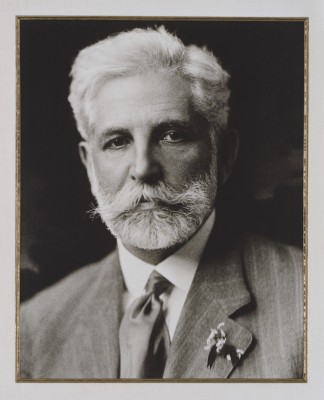Members of The Bellwether Foundation: Ginger Smith, Bob Smith II, and John Wolfe, along with financial advisors from Dunker Street, toured Olin’s new Knight Hall and Bauer Hall buildings on December 9, 2015. The Foundation also held a board meeting at Olin that day. They were especially interested in visiting the new state-of-the-art Bellwether Classroom, named to honor the foundation’s generous support of Olin. The Bellwether Classroom features two translation booths, a full complement of audio/visual features and is the largest tiered classroom in Olin with 91 seats.
 The foundation promotes the ideals and aspirations of its founders and supporters beyond their lifetime by providing funds to organizations for projects that anticipate the future in the areas of the arts, computer science, education, finance, health care, medicine, and the social sciences, including research in any of these areas.
The foundation promotes the ideals and aspirations of its founders and supporters beyond their lifetime by providing funds to organizations for projects that anticipate the future in the areas of the arts, computer science, education, finance, health care, medicine, and the social sciences, including research in any of these areas.
In 2004, The Bellwether Foundation established a professorship in entrepreneurship and was named in honor of Robert Brookings Smith. Barton Hamilton is the Robert Brookings Smith Distinguished Professor of Entrepreneurship.
The Bellwether Foundation was established by the late Robert Brookings Smith, a former Washington University trustee and entrepreneur, and also the great-nephew of Robert S. Brookings, who served as the president of the university’s governing board from 1895 to 1928.




